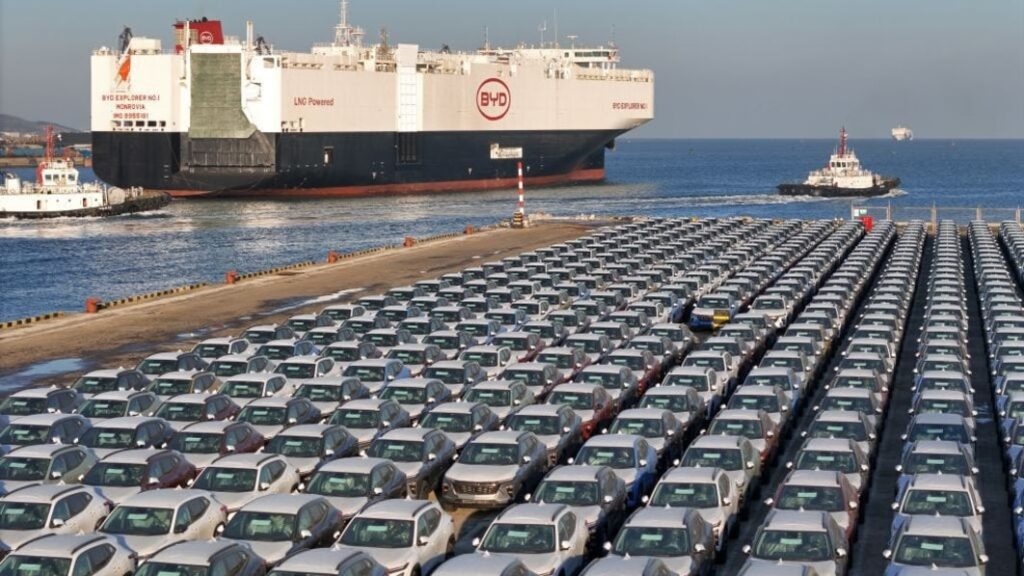Demand for BYD's cars is so nuts it had to create its own shipping fleet to export them around the world

New BYD cars waited to be loaded onto the newly completed BYD Explorer No.1 for her maiden voyage in Yantai in east China’s Shandong province.Future Publishing
The world’s largest EV maker BYD is getting into the shipping business.
The company has purchased its first vessel to ship cars around the world.
The BYD Explorer No.1 set sail on its maiden voyage this month with 5,000 BYD cars.
BYD, the world’s biggest electric vehicle maker, isn’t just hitting roads in a major way — it’s hitting the open seas.
The Chinese company and Tesla rival set sail in January with 5,000 cars on its first vehicle carrier, named “BYD Explorer No.1.”
The new ship represents a major milestone for BYD because it’ll help the company meet the growing global demand for its electric cars by reducing the cost of getting them out to the masses.
China only has access to a small sliver — 2.8% — of domestic car-carrier vessels, according to the MIT Technology Review. Car giants like Japan’s Toyota have whole fleets in place already to transport their cars around the world.
BYD’s new roll-on, roll-off (RORO) carrier is now headed for India after making stops in the Netherlands and Germany, according to Reuters.
The company said in a press release it plans to add seven more vessels to its fleet in the next two years.
BYD sold about 3 million cars in 2023. Though a majority of the vehicles were sold to Chinese buyers, the company exported about 243,000 cars to countries including Australia, Brazil, and Israel, according to Reuters, citing the China Passenger Car Association.
Those limited exports were still enough to surpass Tesla for the first time in the fourth quarter. While EV demand in key regions like Europe and the US has waned significantly in the past several months, auto industry experts say much of this softening in demand has more to do with an affordability issue for electric cars and customers adjusting to a more brutal economic environment.
This could usher in the next stage of a long-awaited Chinese takeover of the electric vehicle market, with BYD’s more affordable models situated well to meet US demand in particular.
EV demand hasn’t dried up in the U.S. so much as it has changed in the past year, with customers prioritizing price and practicality over style and performance. That leaves a perfect opening for BYD, particularly if lower shipping costs allow the company to keep sticker prices low.



